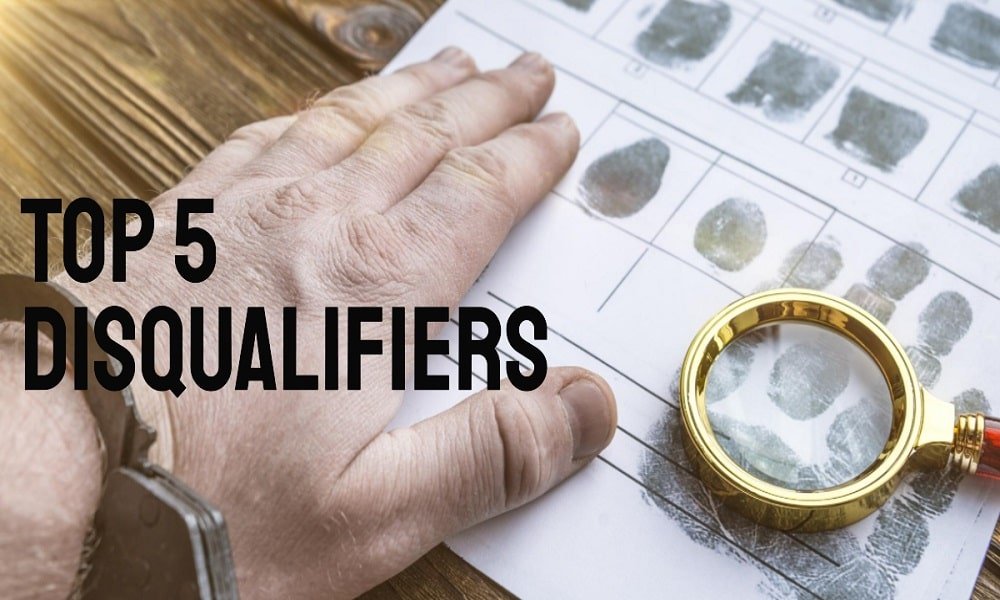Navigating the labyrinthine world of security clearances can be daunting, especially when the stakes are high. Obtaining a security clearance is often a requirement for many federal government jobs and contractor positions, which provide access to classified information critical for national security. In this in-depth guide, we will scrutinize the 5 automatic disqualifiers for security clearances, enabling you to understand what could potentially halt your progress in securing this vital credential.
Background on Security Clearances
Security clearances are classified into different levels, such as Confidential, Secret, and Top Secret. They are designed to safeguard national security by limiting access to sensitive information to trustworthy individuals. The clearance process involves a comprehensive background check, interviews, and sometimes, even a polygraph test.
The Adjudicative Guidelines
Before diving into the disqualifiers, it’s crucial to understand the Adjudicative Guidelines used by federal agencies to assess eligibility. These guidelines cover thirteen areas, ranging from allegiance to the United States and foreign influence to financial considerations and psychological conditions.
The 5 Automatic Disqualifiers
While several factors can influence the granting of a security clearance, the following are commonly cited as automatic disqualifiers:
1. Criminal History
A felony conviction is usually an immediate disqualifier. Additionally, multiple misdemeanors could also be problematic. It’s not just the conviction; pending criminal charges can also result in automatic disqualification.
2. Drug Use and Abuse
Illegal drug use, including the misuse of prescription medications, is a significant red flag. Individuals found abusing substances during the application process are usually disqualified.
3. Dual Citizenship
Although not always a disqualifier, having citizenship from another country can lead to immediate disqualification if that country is deemed a high-security risk. In some cases, renouncing dual citizenship might mitigate this issue.
4. Financial Irresponsibility
A history of not meeting financial obligations, especially defaulted loans and bankruptcies, could automatically disqualify a candidate. A robust financial profile indicates reliability and a low risk of being compromised.
5. Dishonesty During the Clearance Process
Being dishonest at any stage, from the application to the interviews, can lead to an immediate rejection. Falsifying information or omitting material facts is considered a severe violation.
Exceptions and Appeals
Note that in some instances, an automatic disqualification can be appealed. For instance, drug abuse from many years ago may be mitigated by a long period of demonstrated stability and responsibility.
The Importance of Legal Counsel
If you suspect that you might face automatic disqualification, consider seeking legal counsel specialized in security clearances. They can guide you through the appeals process, providing expert advice on how best to present your case.
Frequently Asked Questions
1. Is a DUI considered an automatic disqualifier?
A DUI is not always an automatic disqualifier but could lead to a denial under certain circumstances, such as multiple offenses.
2. Can I get a clearance if I’ve previously had it revoked?
It depends on the reason for the revocation and the time elapsed since the incident. In most cases, a previous revocation will seriously complicate your application.
3. Are waivers available for automatic disqualifiers?
Waivers are exceedingly rare but can be granted under extraordinary circumstances. These usually involve demonstrating that the disqualifying factor no longer poses a risk.
4. How often are clearances denied?
The rate of denial varies by the level of clearance and the agency involved, but denials are relatively rare, with most estimates suggesting rates below 1%.
5. What happens if my clearance is denied?
If your security clearance is denied, you will receive a Statement of Reasons (SOR), outlining why you were denied, along with instructions for appealing the decision.
Conclusion
Navigating the security clearance landscape can be intricate, and understanding the automatic disqualifiers is essential. While some factors like criminal history or drug abuse can lead to an instant denial, there are often ways to appeal or mitigate these factors. The most important takeaway is to be honest and forthcoming throughout the entire process.







